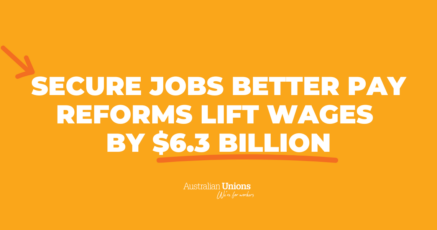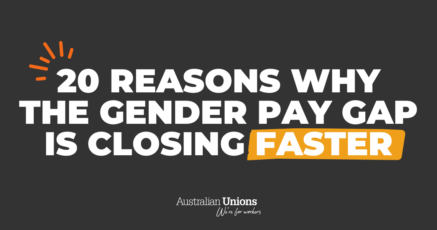No matter what you do for work, it’s essential to understand your rights when it comes to your payslip.
Your employer is responsible for maintaining accurate records, and must provide you a payslip within one business day of receiving your pay.
While there are penalties in place for employers who fail to do so, not every employer does the right thing. Sometimes it’s an honest mistake, but there are some employers who deliberately withhold or alter payslips as a way to underpay staff.
One of the best ways you can protect yourself is to take the time to double-checking your payslips, especially when you begin working at a new job.
What should your payslip include?
A payslip shows much more than just the salary you receive. Your payslip can be provided electronically or in hard copy, but either way, it must include the following information:
- employer’s name and ABN
- the pay period
- gross and net pay
- loadings
- allowances
- any deductions
These details are crucial for verifying that you are being paid correctly and transparently.
There are other payslip requirements depending on your employment type and entitlements, including:
- If your employer is required to pay superannuation contributions (which most are),
- The amount of the contribution
- The name, or name and number, of the superannuation fund the contributions were made
- If you are paid at an hourly rate,
- What the ordinary hourly pay rate is
- The number of hours paid at that rate
- The amount of payment made at that rate
- If you are paid an annual rate of pay (salary), what the rate of pay was on the last day of the pay period
What should you check your payslip against?
Checking your payslip is only one half of the task – if you don’t know what you’re checking it against, how can you know if it’s right or not?
You should keep your own record of the hours you work, so you can match it against your employer’s. You will also need to know whether you are employed under and award, an agreement, contract or otherwise – these instruments are usually what stipulate what your minimum pay and conditions are.
Also! Make sure you’re keeping an extra eye out when your pay or entitlements change: for example, if you’re on the minimum wage or an award, you should have received a pay rise from 1 July and the government’s cost-of-living bonus means your payslip should reflect an increase in how much of your pay you keep after 1 July too.
If you’re below 21, your pay may increase each birthday (union members are campaigning to change that).
Employer obligations: payslips and record-keeping
Employers have other obligations too.
For instance, they are required by law to keep detailed records of your employment for at least seven years.
This includes your start and end dates, pay rates, hours worked (especially for casual and part-time employees), leave balances and superannuation contributions.
Accurate record-keeping by your employer is a non-negotiable.
What payslip errors look like
An irregularity with your payslip can be a serious offence, and may constitute deliberate underpayment or wage theft if your employer has knowingly done the wrong thing.
There have been cases, for example, where employers have recorded superannuation contributions on payslips, but without actually paying the contribution.
This is a serious form of wage theft because it jeopardises a worker’s future retirement incomes, often without the worker’s knowledge.
This is why it’s important for you to check your superannuation balance regularly and confirm that superannuation contributions are being made as per your payslip.
Other common forms of payslip errors include underreporting or misrepresenting hours worked; failing to report or fairly compensate overtime hours worked; and failing to update leave hours accrued and other entitlements.
What to do if something isn’t right
If you notice any errors in your payslip, or suspect your employer is not maintaining proper records, it’s important to act.
Approach your employer: it may just be an honest mistake, but if not, and if the problem is not resolved, then it’s time to speak to your union.
How your union can help
Knowing your rights is the best way to protect them. Your union is a powerful advocate that will always be on your side; helping you to understand what your rights are and guiding you on what steps you can take.







SHARE:
Are you being paid correctly?